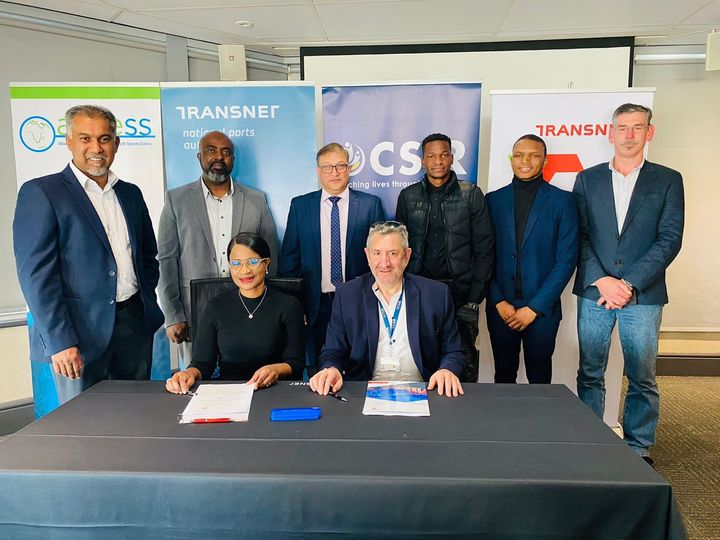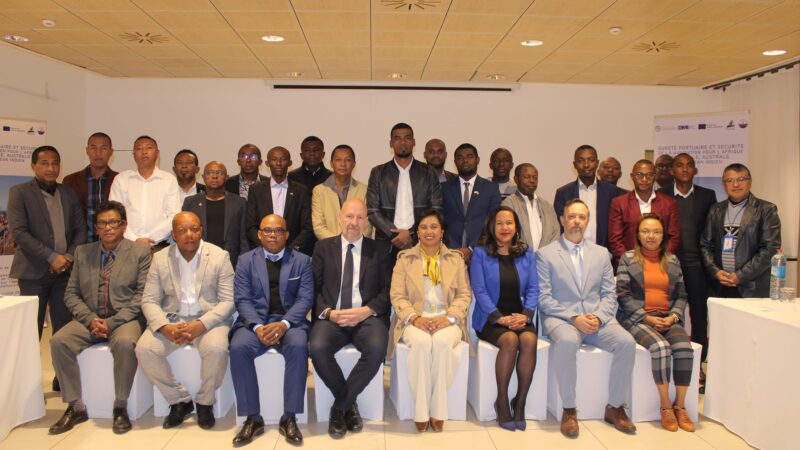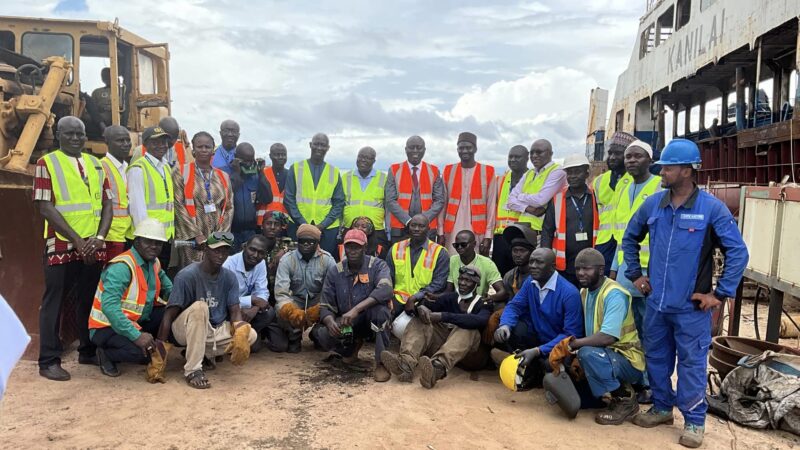SOUTH AFRICA : TRANSNET NATIONAL PORTS AUTHORITY PARTNERS WITH CSIR TO ADDRESS EXTREME WIND DISRUPTION TO OPERATIONS IN THE PORT OF CAPE TOWN
Transnet National Ports Authority (TNPA) has signed a Memorandum of Agreement (MoA) with the CSIR-hosted programme, ACCESS (The Alliance for Collaboration on Climate and Earth Systems Science) and other research institutions to establish a series of research projects aimed at understanding the impact of extreme wind disruption to operations for the integrated maritime transport logistics chain at the Port of Cape Town (PoCT).
The PoCT has lost on average 1200 hours per year of operational time due to extreme wind disruption in the past few years. Extreme wind gusts can result in terminal equipment becoming unsafe to operate, thereby impacting on terminal operations. This sometimes leads to congestion both in the port and outside the port, resulting in vessels at anchorage for extended periods. Several industries, including the time-sensitive fruit industry, are severely impacted by wind disruptions in the port.
Climate specialists at the University of the Witwatersrand are studying the seasonal climate patterns that result in extreme winds to establish trends and whether the wind is intensifying with time, and how the wind patterns in the Cape Peninsula and the port are likely to change because of climate change. Researchers at the University of KwaZulu-Natal and the University of Cape Town are examining the current and future economic impact of these disruptions on specific value chains in order to estimate the financial losses and assess the required investment into adaptation measures to deal with the problem. The Council for Scientific and Industrial Research and the University of Cape Town are focusing on feasible engineering and operational adaptations to address the challenge.
Advocate Phyllis Difeto, TNPA Managing Executive for Western Region ports, who signed the MoA, says that the TNPA appreciated the increasing risk of environmental challenges to port operations and that unless these were carefully understood and managed, they could add a burden to the management of the ports. “Climate change presents a growing challenge to shipping and ports as it impacts the state of both land and sea operations.”
CSIR senior researcher and ACCESS Director Dr Neville Sweijd says extreme weather is really the way in which climate change manifests. He explains that these extreme events, which occur in South Africa and everywhere else, are projected to intensify as global warming and climate change manifests further, and this is how people will experience it in their lives and work.
“The extreme wind problem in the Port of Cape Town is a classic example. It is not a new problem, but potentially a worsening one, and so it will increasingly have an impact on lives and livelihoods all around the Western Cape, especially for those people involved in the fruit export industry,” says Sweijd.
Sweijd explains that the project seeks to produce solutions that can be used to adapt to and manage the extreme wind impacts. “We cannot turn the wind off, but we can learn to better work with it,” he adds.
Stakeholders representing exporters and importers, freight management, and producer associations, met in June 2023 at a workshop to outline and scope precisely how businesses were impacted by port disruptions. The MoA between TNPA and the research consortium will provide access to valuable data sources required for the study. The team will work closely with TNPA and the port stakeholders over the next two years to find optimal ways of addressing the challenge. “Strategic partnerships are critical for a successful and integrated maritime transport logistics chain, and the TNPA continues to collaborate and partner with all stakeholders to optimise the value proposition of the port and the Western Region,” said Difeto.
TNPA




